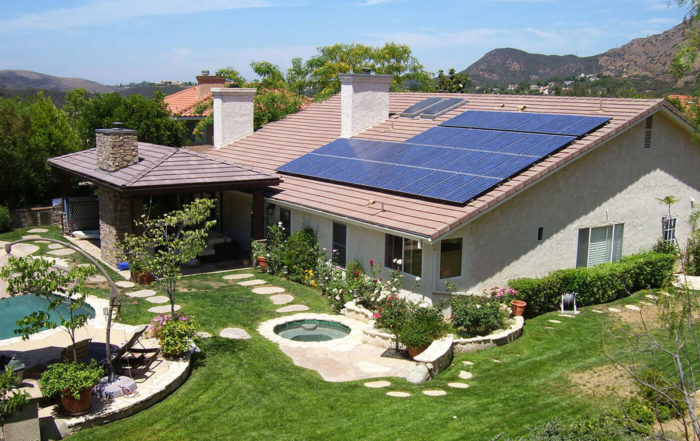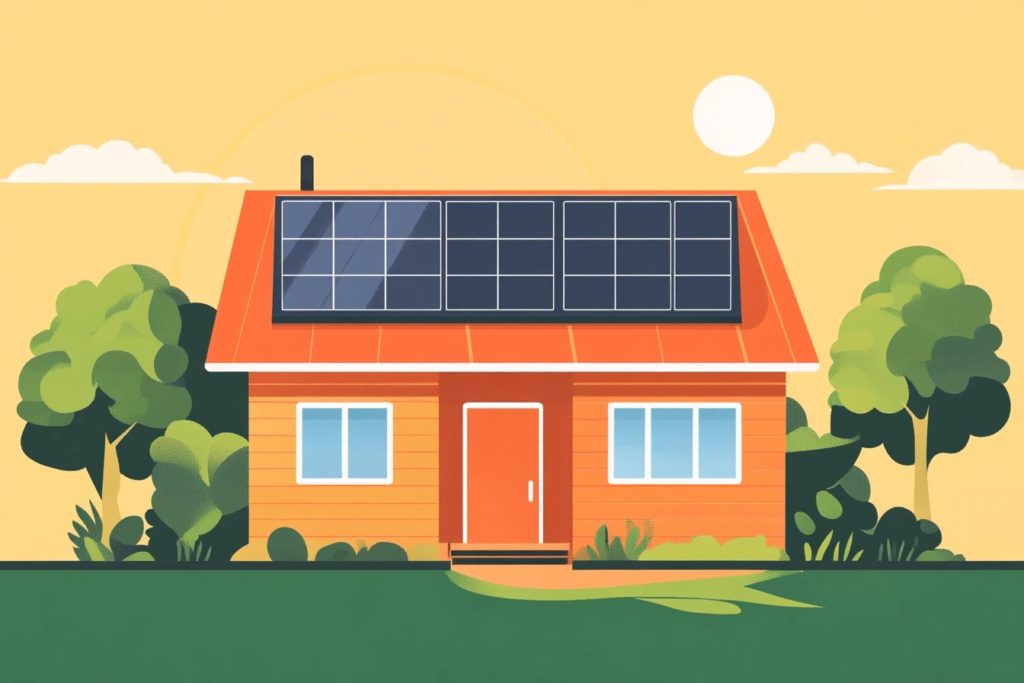There are many advantages to residential solar installations. It’s great to do your part to protect the environment, and solar panels can also save you a tremendous amount of money because they prevent you from needing to buy electricity from your utility company. However, you might be wondering how to sell solar electricity to make the financial benefits even more significant.
Customers frequently ask, “Can I sell my solar electricity?” Beyond this simple question, there are often follow-up questions about how much you can sell your excess solar energy for, who you can sell it to, and more. In this convenient guide, we’ll walk you through all of the important details regarding how to sell electricity from solar panels.
Produce More Electricity Than Your Home Can Use
The first step toward selling solar energy is producing more electricity than your home can use. If it’s a beautiful, sunny day outside — and it’s comfortable enough that you don’t need to run your air conditioning — your solar panels are generating energy that you don’t currently need. In these circumstances, it’s nice to be able to take advantage of net metering to sell your excess power back to the grid.
Net Metering Varies From State to State
Net metering allows you to sell energy to your utility company, helping power your region while putting money in your pocket. The term “net metering” refers to the fact that you only need to pay the net amount for the electricity you purchase from your utility provider, subtracting any money you earn from selling them your extra energy.
However, net metering laws vary widely from state to state, and some states don’t have statewide mandates for net metering. For example, if you live in Idaho or Texas, you may not be allowed to sell energy into the grid unless you’re hooked up to a utility that specifically offers compensation for solar net metering. In addition, other states severely limit net metering, like Utah and Mississippi.
There are other complicating factors as well. Depending on your state, you may or may not be allowed to roll your net metering credits over to the next month when the current month ends. Some states also set expiration dates that cancel out any unused net metering credits at the end of each calendar year.
To be clear, no matter where you live, it’s unlikely that you’ll be allowed to sell more energy than you use. The vast majority of states set hard limits on net metering that prevent consumers from selling excess solar energy. This is because net metering was originally intended to encourage more people to install solar panels for their homes, not to encourage people to build solar farms for the express purpose of selling the energy. For more information on the solar incentives available in your state, check out our full blog post on this topic.
Utility Companies May Cap Net Metering
Your individual utility company might also have its own rules that attempt to place a cap on net metering. Especially if your utility provider owns and operates its own power plants, it might not be too excited about actively helping people seek out better options. Some utilities even charge fees and surcharges to discourage people from participating in net metering, although this is still uncommon.
Ask The Experts at LGCY Power
The best way to answer the question of “can I sell my solar electricity” is to ask an expert. Thankfully, our LGCY Power Energy Consultants are ready and waiting to help you figure out all of the essential details of how to sell electricity from solar panels. Our representatives know all about each state’s net metering rules and regulations, and they can help you figure out how much money you could save by selling solar electricity.
It’s also important to keep in mind that you can still save significant amounts of money by installing solar panels for your home, even if you live in a state with restrictive net metering laws. If you can’t even sell one watt of the solar energy generated by your residential system, you’ll still enjoy not having to pay your monthly electric bill. And, of course, you’ll still be protecting the environment by declining to use fossil fuels to generate the electricity you need to run your home.





